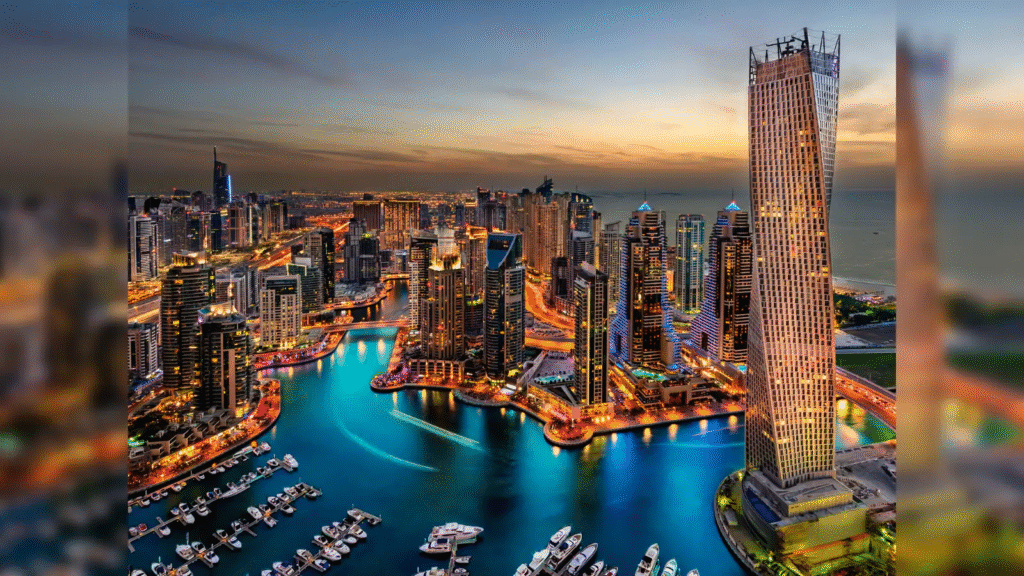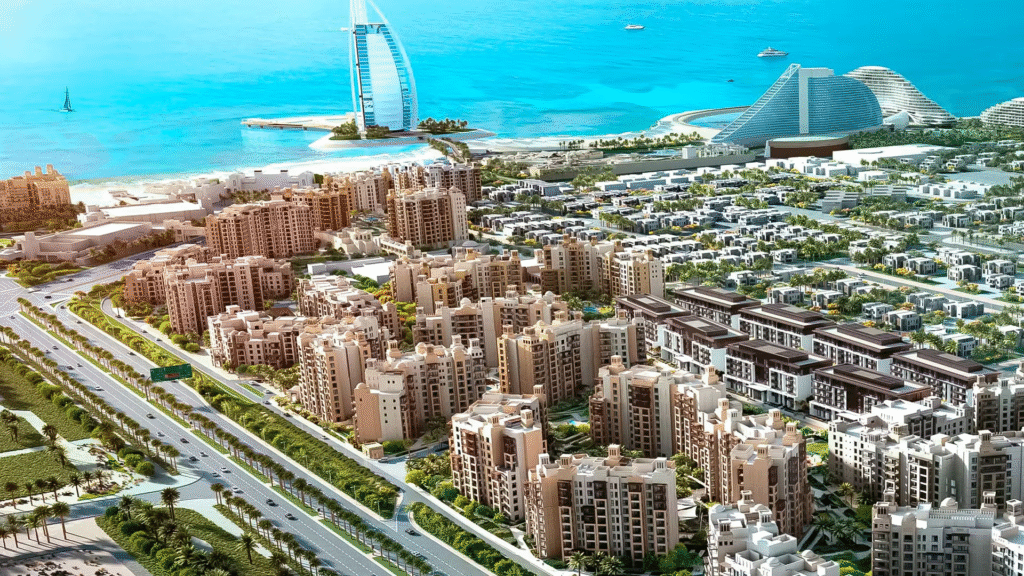
Dubai, UAE – May 23, 2025 – Non-Resident Indians (NRIs) have long seen the United Arab Emirates (UAE) as a second home. With over 3.5 million Indians living in the UAE, it’s no surprise that interest in real estate investment is on the rise. But how easy is it for NRIs to own property in the UAE? What laws should they be aware of? And where are the best opportunities?
This article breaks down everything NRIs need to know about owning real estate in the UAE, especially in Dubai – the heart of the Gulf’s property boom.

NRIs have several reasons to invest in the UAE’s real estate market:

Yes, they can. NRIs are legally allowed to buy property in designated areas in the UAE known as “freehold zones.” These are areas where foreigners, including NRIs, can own property outright. This rule applies across various emirates including Dubai, Abu Dhabi, Sharjah, and Ras Al Khaimah.

A freehold property allows the buyer full ownership of the unit and the land it stands on. Popular freehold areas in Dubai include:
In Abu Dhabi, NRIs can invest in areas like Al Reem Island, Yas Island, and Saadiyat Island, where foreign ownership is permitted.
NRIs can buy the following property types in freehold areas:
Properties can be bought off-plan (before construction is completed) or ready-to-move-in. Off-plan properties often come with attractive payment plans, but carry construction risk.
Buying property as an NRI in the UAE is a straightforward process:
Work with a RERA-certified real estate agent (in Dubai) or a licensed agent in your chosen emirate to shortlist options.
Pay a booking fee (usually around 5%-10% of the property value) to reserve the unit.
The sales purchase agreement (SPA) outlines payment terms and timelines.
Dubai Land Department (DLD) requires a 4% registration fee, paid by the buyer.
Once payment is complete, the property is registered in your name. You’ll receive a title deed, confirming ownership.
Many banks in the UAE offer home loans to NRIs, usually covering up to 50%-75% of the property value. Key eligibility criteria include:
Loan tenure can go up to 25 years, and interest rates vary from 3% to 6%, depending on the bank and loan type.
Absolutely. NRIs can rent out their property either long-term or on a short-term (holiday home) basis. Short-term rentals, especially in tourist-heavy areas like Dubai Marina and Downtown, can yield higher returns.
Make sure to register with Dubai’s Department of Economy and Tourism (DET) if opting for short-term leasing.
The UAE real estate market, especially in Dubai and Abu Dhabi, is expected to grow steadily. Major infrastructure projects, visa reforms, and increased foreign investment will keep pushing demand.
According to recent data from Bayut and Property Finder, Indian investors were among the top foreign buyers in 2024. This trend is likely to continue, especially with favorable exchange rates and growing trust in the market.
For NRIs looking to diversify their investments or own a second home, the UAE is a top choice. With its investor-friendly laws, tax advantages, and luxury lifestyle, owning property in the UAE is no longer a dream – it’s a smart move.
Whether you’re planning for rental income, capital appreciation, or a future home in the Gulf, now is a great time to explore UAE real estate opportunities.
Read More:- Shobha Realty Launches Its Most Luxurious Project Yet—Full Details Inside 2025
